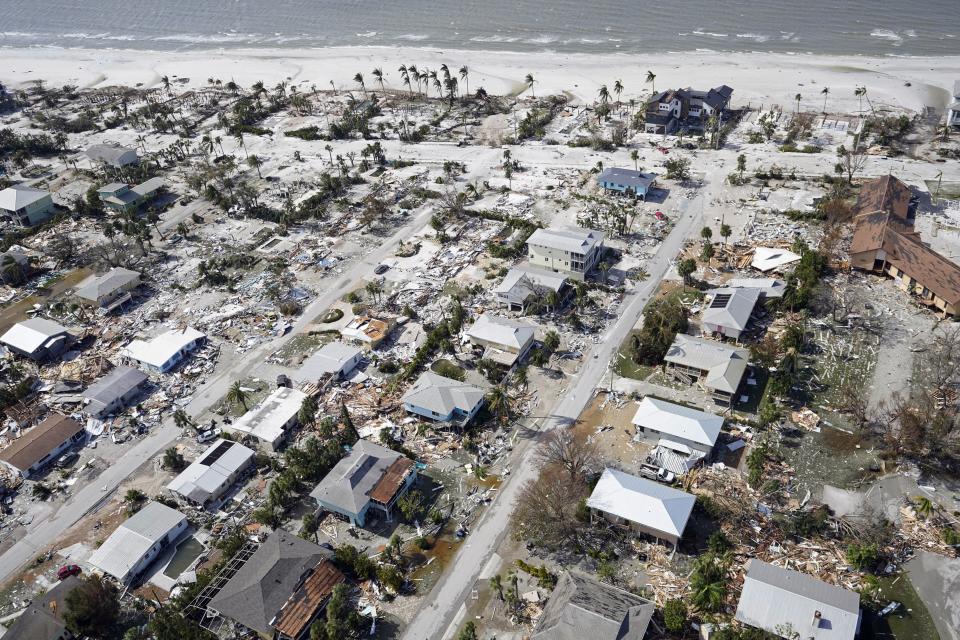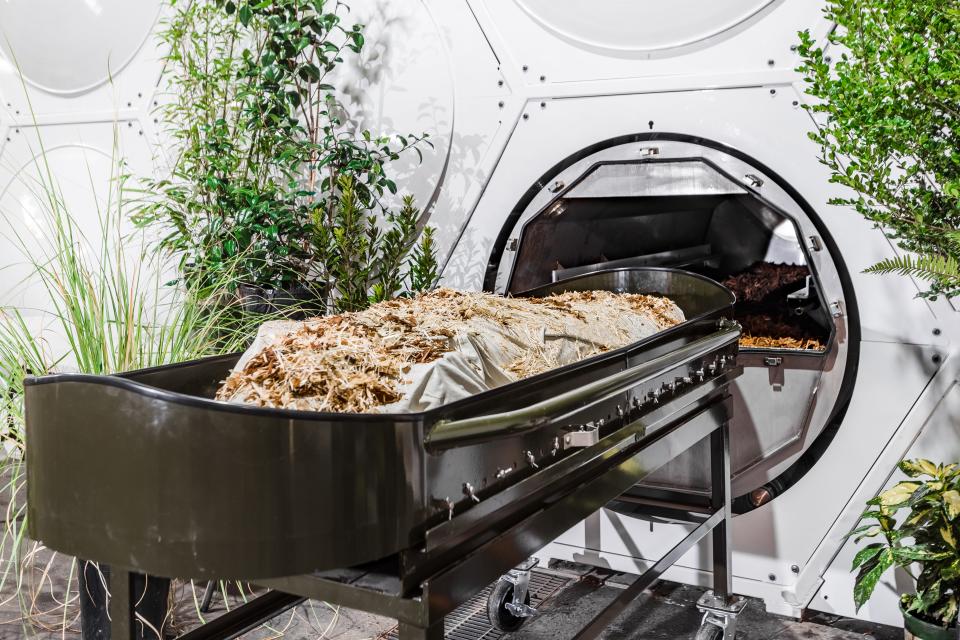In ag. & eco: Tough cotton year, Hurricane Ian, human composting and more
Howdy, y'all!
I'm Brandi D. Addison, the regional agriculture and natural resources reporter for the USA TODAY network in West Texas, covering all things from the earth to the sky — and this is your weekly agriculture and eco news round-up.
This is your weekly agriculture and environmental news round-up, bringing big news stories from around the nation.
Among this week's topics: A tough cotton year, the damage of Hurricane Ian, a new human composting bill and a lawsuit against two major pesticide makers.
Regional cotton woes
All along the High Plains and West Texas, cotton farmers are facing the same scenario: Thirsty, scorched crops that are dwindling by the day.
For this story, I spoke with many farmers who planted five to 10 times more acres than what they'll actually bring back to harvest later this year. While they know they'll be OK with the "safety net" of crop insurance, they worry for the adjacent agriculture businesses, such as agronomics and gins. One farmer, who is also the board president for his local co-op, said they harvest about 100,000 bales on average but would be lucky to see 20,000 bales this year.
With struggles across the entire agriculture industry , the region could face a $2.1 billion loss in total economic activity with more than 17,100 job cuts across the region.
"We have zero dryland cotton in Lubbock County right now," said Brant Baugh, a county extension agent for agriculture and natural resources with Texas A&M Agrilife Extension. "We're looking at a pretty catastrophic loss in dollars from the agriculture community."
Hurricane Ian aftermath

Hurricane Ian hit Florida in full force on Wednesday as one of the most catastrophic disasters the state has seen.
USA TODAY journalists John Bacon, Doyle Rice and Celina Tebor have covered the hurricane from its emergence to its aftermath.
The Category 4 storm made landfall near Cayo Costa Wednesday afternoon with maximum sustained winds at 150 mph, just shy of a Category 5 status by 7 mph, the journalists reported Wednesday. This tied Hurricane Ian for the nation's fifth-strongest hurricane when measured by wind speed.
The current death toll sits at 54, Bacon reported in a separate story, with 47 confirmed fatalities in Florida, four in North Carolina — where the storm regained its force after hitting the Florida coast — and three in Cuba, where it initially made landfall.
As of Sunday morning, more than 800,000 homes and businesses remained without power, Bacon added.
A new human composting bill

California Gov. Gavin Newsom signed a new bill into life last week — the possibility of human composting after death, USA TODAY National Breaking News Reporter Celina Tebor reported.
The new bill created a state regulatory process for "natural organic reduction" — or the transforming of human remains into soil — and will go into effect in 2027.
With this decision, California becomes the fifth state to legalize human composting, behind Oregon, Washington, Colorado and Vermont, Tebor reported.
Major lawsuit against Syngenta and Corteva Agriscience

Ten states and the Federal Trade Commission are filing a lawsuit against pesticide makers Syngenta and Corteva Agriscience, Des Moines Register Agricultural and Energy Reporter Donnelle Eller reported.
The lawsuit alleges anti-competitive practices that have cost farmers millions of dollar and cites situations in which they believe the company to have used "loyalty programs" with pesticide distributors to exclude generic competitors from the market, which both companies have denied.
Among the 10 states that have joined the complaint: California, Colorado, Illinois, Indiana, Minnesota, Nebraska, Oregon, Texas, Wisconsin and Iowa, which most recently joined the suit last week.
Launched in September 2022, "In Ag. & Eco" brings a small collection of informative, unique, and sometimes just weird, agriculture and environmental news from around the world to our readers.
Brandi D. Addison is the Agriculture and Natural Resources Reporter for the Lubbock Avalanche-Journal. Send tips or suggestions via BAddison@lubbockonline.com or @BrandiDAddison on Twitter.
This article originally appeared on Lubbock Avalanche-Journal: In ag. & eco: Tough cotton year, Hurricane Ian, human composting, more
